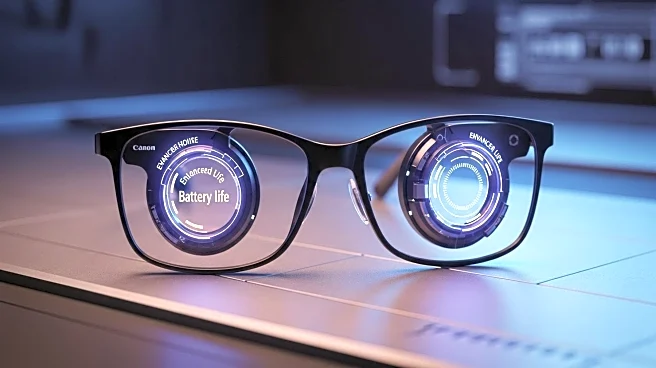What is the story about?
What's Happening?
Ray-Ban has released the Meta Gen 2 smart glasses, which are considered the best non-display smart glasses available. The new generation offers significant improvements in battery life and video recording capabilities. The battery life has been doubled, now providing approximately 8 hours of general use, with the charging case extending from 32 to 48 hours. Video recording has been upgraded to a maximum resolution of 3K, with a 60 fps option available for 1080p recordings. Despite these enhancements, the still photo capabilities remain unchanged, with a 12-megapixel sensor. The glasses maintain the same size and features as the previous generation, including speakers and microphones.
Why It's Important?
The advancements in Ray-Ban Meta Gen 2 smart glasses highlight the growing importance of wearable technology in everyday life. Enhanced battery life and video capabilities make these glasses more practical for users who rely on them for activities such as recording videos during sports or outdoor activities. The improvements could attract more consumers to smart wearables, potentially increasing market demand and driving further innovation in the industry. However, privacy concerns remain, as Meta's track record on data protection is questionable, which may deter some users.
What's Next?
Meta plans to release a software update on October 1 that will enable the 60 fps video recording feature. This update coincides with the launch of the Oakley Meta Vanguard smart glasses. Users can expect continued improvements in smart glasses technology, with potential future upgrades focusing on still photo quality and integration with other apps. The market will likely see increased competition as other brands develop similar products, pushing for more advanced features and better user experiences.
Beyond the Headlines
The release of Ray-Ban Meta Gen 2 smart glasses raises ethical questions regarding data privacy and the use of AI in consumer products. As these devices become more integrated into daily life, the balance between technological advancement and personal privacy will be a critical issue. The reliance on platforms like Instagram and WhatsApp for messaging and calls may limit accessibility for users who prefer other services, highlighting the need for broader compatibility in future iterations.

















